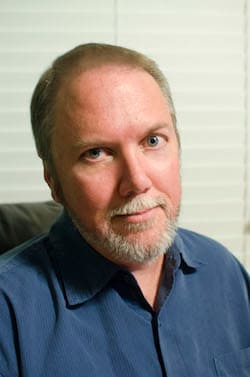 I spent September 11th this year at the Schermerhorn Symphony Center, listening to the Nashville Symphony performances of two very diverse types of classical music. The Nashville Symphony is, without a doubt, world-class in its performances, and it is blessed with a most amazing-sounding performance hall. This was my first time visiting the Schermerhorn Symphony Center, and it clearly won’t be my last.
I spent September 11th this year at the Schermerhorn Symphony Center, listening to the Nashville Symphony performances of two very diverse types of classical music. The Nashville Symphony is, without a doubt, world-class in its performances, and it is blessed with a most amazing-sounding performance hall. This was my first time visiting the Schermerhorn Symphony Center, and it clearly won’t be my last.
The opening half of the show was dedicated to the memory of the victims of the 9-11 attacks, and featured On the Transmigration of Souls, by John Adams, a composition for orchestra, chorus, children’s choir, and pre-recorded tape. Though the performance was spectacular, under the direction of conductor Giancarlo Guerrero, the piece was not my particular favorite of the evening. I was really there to hear my favorite Beethoven symphony, which is #9, also known as Ode to Joy.
As I listened to this lifelong favorite symphony that evening, with its spectacular movements, its highs and lows, its choral performances and its solo vocals, I thought back to myself about where I might have first heard it. Was it as a child on a Beethoven album given to me by my late grandmother after I precociously joined the Camelot Music Classical Club as a boy with an odd interest in classical music? Was it in the Beatles movie, Help!, that I first heard it? I could not actually recall. Years later I would hear it again in A Clockwork Orange by Stanley Kubrick, as the favorite symphony of Malcolm McDowell’s sociopathic Alex DeLarge. It has, of course, made appearances throughout popular culture, and recently I heard it as the background music for a video game a child was playing on his tablet. But did that child know what he was listening to, or was it just background fodder for his Peggle game?
This, of course, got me further pondering about the methods we use to introduce students to classical music, to educate them on the importance of these works not only historically but to the critical need to continue their performance for generations more to come.
Finding those students who will love classical music, classical instruments and who are enthralled by the chance to play in an orchestra, nurturing that talent to its fullest potential, is critical to the survival of every symphony program anywhere in the world. Not every student will find their muse in the classical world, of course, but they still need to be taught an appreciation of our history, as I firmly believe it helps them to understand the music of today. We hear string arrangements straight out of symphonies in hip-hop, R&B, pop, rock, and other modern music. I think it makes teaching composing, or performing, or recording music much more interesting when one understands the origin of the types of arrangements they can create.
On the other side of this, if we are honest with ourselves, we will also recognize that a student from lesser socio-economic means are less likely to be exposed to classical music, to ever see a symphony performance, or to be afforded the advantage of classical training on a symphonic instrument. Music is social. Students will listen to what their families and their peers listen to. If they are from disadvantaged means, they are less likely to hear or appreciate the classics. This may be a hard truth in most cases, but it should never stop us from making sure all students from all backgrounds and classes are exposed to great music. Most cities with a symphony have outreach programs in their community where they will bring a quartet into your school to expose your students to this world. If you’ve never done so, I strongly encourage you to contact them and setup a visiting performance or presentation to your students. Perhaps someday, your students will be sitting in a symphony hall, listening to a favorite classical piece, trying to recall where they first heard it, and think of you instead of a video game soundtrack.









